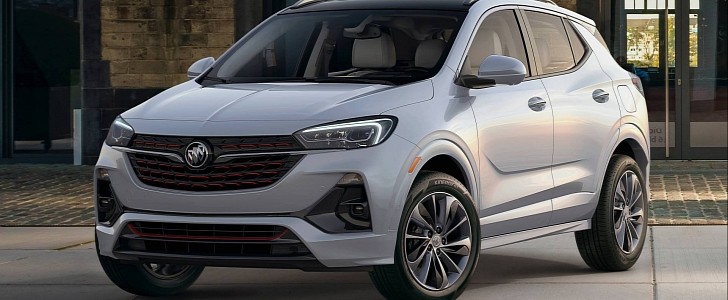Electric vehicle owners have often been affected by charging stations blockages known as “ICE-ing.” Now it seems ICE vehicles owners have icing problems of their own. In the case of those driving GM vehicles with a small turbocharged engine, this means reduced engine performance in winter conditions.
According to GM TechLink, the intercooler (or charge air cooler or CAC as it is also known) of these vehicles will ice over when the temperatures fall below 0 degrees Fahrenheit (minus 18 degrees Celsius). This means the airflow to the engine cylinders is restricted, resulting in power loss or throttle hesitation. In addition, this condition will trigger a series of diagnostic trouble codes related to intake air pressure, engine underboost, engine overboost, turbocharger boost sensor, engine misfire, and barometric pressure sensor.
Fortunately, the conditions detailed above will only occur in the first 10 to 15 minutes after a cold start and will diminish after driving for some time. The intercooler icing is more likely to appear in vehicles with smaller engine displacements. These include 2018-2022 Chevrolet Equinox and GMC Terrain models equipped with the 1.5-liter engine (LYX), 2020-2022 Buick Encore GX, and 2021-2022 Chevrolet Trailblazer models equipped with the 1.2-liter engine (LIH) or 1.3-liter engine (L3T) and 2016-2019 Chevrolet Cruze models equipped with the 1.4-liter engine (LE2).
Although the problem should go away as the engine warms up, there are situations when this does not happen. In that case, the ice may build up on other components too, causing unpredictable behavior or even damage if left unchecked. According to GM TechLink, in the case of some 1.3-liter and 1.3-liter, this could lead to an increase in crankcase pressure, creating potential oil leaks at seals and gaskets.
In addition, some 1.4-liter and 1.5-liter engines affected by intercooler icing may gather frozen oil/water contaminants in the turbocharger wastegate regulator solenoid valve. If that’s the case, the solenoid valve should be cleaned or replaced. A new ECM is also available to flash at dealer's service centers, enabling new transmission patterns in cold weather conditions.
Fortunately, the conditions detailed above will only occur in the first 10 to 15 minutes after a cold start and will diminish after driving for some time. The intercooler icing is more likely to appear in vehicles with smaller engine displacements. These include 2018-2022 Chevrolet Equinox and GMC Terrain models equipped with the 1.5-liter engine (LYX), 2020-2022 Buick Encore GX, and 2021-2022 Chevrolet Trailblazer models equipped with the 1.2-liter engine (LIH) or 1.3-liter engine (L3T) and 2016-2019 Chevrolet Cruze models equipped with the 1.4-liter engine (LE2).
Although the problem should go away as the engine warms up, there are situations when this does not happen. In that case, the ice may build up on other components too, causing unpredictable behavior or even damage if left unchecked. According to GM TechLink, in the case of some 1.3-liter and 1.3-liter, this could lead to an increase in crankcase pressure, creating potential oil leaks at seals and gaskets.
In addition, some 1.4-liter and 1.5-liter engines affected by intercooler icing may gather frozen oil/water contaminants in the turbocharger wastegate regulator solenoid valve. If that’s the case, the solenoid valve should be cleaned or replaced. A new ECM is also available to flash at dealer's service centers, enabling new transmission patterns in cold weather conditions.










